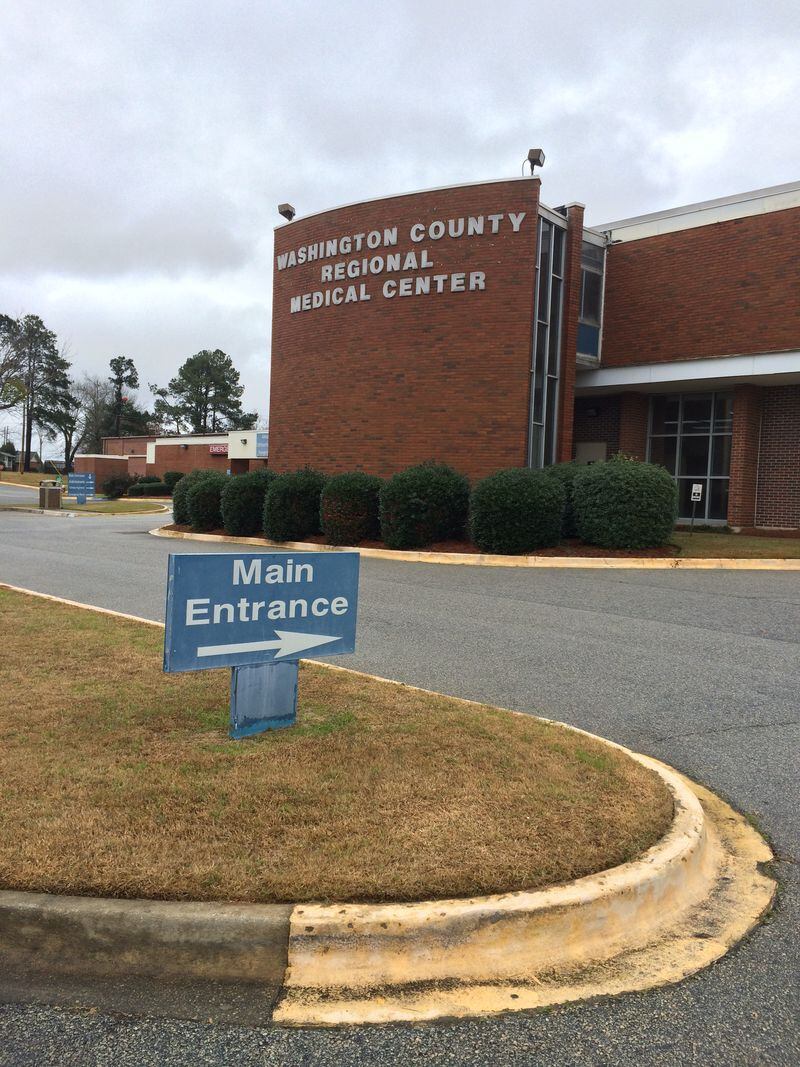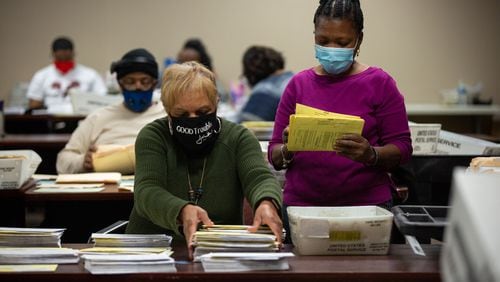In rural areas all over Georgia, community leaders are facing the troubling prospect of losing their local hospitals.
Credit: Carrie Teegardin
Credit: Carrie Teegardin
How many communities are living through a similar struggle? The AJC reviewed the 2014 financial reports for hospitals around the state and found that dozens are operating in the red.
Rural hospitals in many other states got a boost under Obamacare, with its massive extension of the Medicaid program. But the state of Georgia's decision to opt out of the Medicaid expansion means Georgia hospitals are still treating lots of uninsured patients who can't pay.
Many of the state's small hospitals believe the path to survival relies on finding a large hospital partner. But these deals are hard to find, because a lot of these little hospitals simply aren't attractive to the large hospital systems.
Ed Burr, the chief administrative officer at University Health Care System in Augusta, said his hospital system has turned down quite a few partnership requests. "I just got one today and we turned it down," Burr told the AJC last week.
Burr said a small hospital needs to attract a minimum number of patients to make it viable and a lot of the rural hospitals simply do not meet the benchmarks. "I think the reality is that a lot of them probably are going to have to close," Burr said.
University did make an offer to take over the Washington County hospital, the subject of Sunday's AJC story. University and Washington County had an initial management agreement in place with an eventual lease agreement in mind. But the county ended up rejecting the partnership deal last year, even though the local hospital authority supported it.
Rob Mathis, an executive in Washington County's kaolin industry, was the volunteer chairman of the local hospital authority until last week.
Mathis supported the deal he worked on with University Hospital to take over the Washington County hospital.
He said the community is upset that the Washington County Regional Medical Center is in danger of closing and many are blaming Jimmy Childre, the local Ford dealer who took over as the hospital CEO after serving on the authority for years. Childre's compensation has been especially controversial.
"The public needs to realize a good deal for this county was out there," Mathis said.
The county commissioners, however, were wary of the deal on the table. County Attorney Tom Rawlings said University Health Care demanded a quick answer on a lease agreement that required the county to put up millions of dollars. But the commissioners weren't convinced that the county would benefit over the long haul.
“You have to make sure you’re going to get a return on your investment," Rawlings said.
The county started looking for other partners and is planning on asking Washington County residents to approve a tax increase to pay off debts and make improvements to the hospital, in hopes of gaining a partnership with Augusta University, which includes the Medical College of Georgia.
It will be left up to the people to decide whether it will be worth more in taxes to keep the local hospital viable, something many in the community believe is vital to future economic development experts. It's likely that many other communities around the state will face a similar question: are higher taxes worth it to save a local hospital?
In spite of his frustrations that the county did not accept the deal with University, Mathis said he'll vote for a tax increase for the hospital when it is on the ballot. "It's a very important part of our county," he said.
Since 2013, six Georgia hospitals have closed, although one reopened with limited services. A hospital in Ellijay announced plans last week to close its inpatient operation and lease its ER to Piedmont Healthcare. Rural hospitals in neighboring states are struggling too, according to a new report in Georgia Health News.
Gov. Nathan Deal created the Rural Hospital Stabilization Committee in 2014 to find ways to stabilize the state’s rural health care system.







